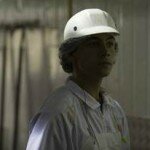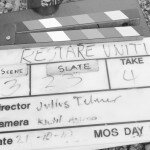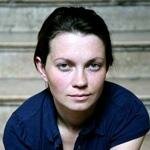Competing for the Short Palme d’Or at Cannes alongside Aussie Nash Edgerton’s Bear, Sam Holst is flying the flag for New Zealand with Meathead. Cut Print Review caught up with Holst after the initial press screening to discuss his sentiments on the festival, TV commercials and the fact that he’s from Melbourne.
CPR: Meathead’s based on the experience of your friend… how much of that did you use in your story?
Sam: Well the idea was that I’d use that as the basis; it was the central idea of the film, the essence of the story, so it went from there and that was the main thing. Then everything else was part of my narrative… I’d say it was 50/50 between his story and the elements of my imagination. A lot of it also adapted to the place we were filming in and that brought more creative elements and ideas. Of course we’d written the script as to how we do things…
CPR: So was there any flexibility in filming?
Sam: No, not with the sequencing but a bit with the location… at the place we filmed the people were extremely helpful and welcoming but the place is what it is, they just told us how it worked… it’s a narrative driven film with a strange way of unfolding, in a world that isn’t like in a documentary, and it took time to adapt to that world and then change back.
CPR: Was it a challenge for you?
Sam: Yeah definitely, you know, being on location… not everyday, but six months of visiting places, the photography, floor plans, the logistics and creative planning, to work out how we could make it work technically and creatively. That’s all the parts of the charms and process, even going to the local areas and stuff… that’s another part too, the habitat to the story.
CPR: How long did it take to shoot?
Sam: Was it five or six days?… I think I’m going to say five.
CPR: Did you feel Meathead benefited from having non-actors? Why did you choose that path in the process?
Sam: Just the authenticity, the truth to it, where it was based. It became really clear that I needed it to be as real as I could to make it work; it’s important to attempt to make something real. That was the main reason and then it’s what the characters are doing, the way they carry themselves, how they dress. There weren’t any actors available or they weren’t able to re-create that. And then same with the lead kid of the story; actors in New Zealand, young actors, aren’t from that area and that part of the world to experience it the way that kid does.
CPR: So did your lead work there?
Sam: No, he was just from a school about half an hour, an hour from the location, through the region called Waikato into Coromandel, and we filmed through there. We went to all the schools… actually, he was at the first school we went to but we went through a lot of other schools and then went back.
CPR: Did you have any particular influences or inspirations while making the film?
Sam: You know, we discussed a lot of references in pre-production and they were very eclectic, very small though, like opinions on framing, genre, lighting… we were looking at 1970s anamorphic films, like scenes in The Deer Hunter. Things that were in a cinematic field but were very real, then taking that reality and crafting it. Shooting and treating it in the heightened experience of that world.
CPR: You’ve been quoted as saying you wanted to fuse neo-realist principles with filmic expression… can you elaborate on that?
Sam: I just wanted — it’s like what I was saying with the real location and environment, taking that and through expression, ambiguity and style really using all of those when behind the camera. So it’s just an intention to not have it structured like a documentary, and it was an intention that you know, you’re doing something that’s interpretative as an expression and point of view, rather than just observing life as it is.

CPR: How did you react to your selection in Official Competition for Cannes?
Sam: Oh it was a big shock… reeling for days afterwards. But very pleased and joyous – it’s exciting and overwhelming really. You don’t really come to terms with it until you’re here and it becomes real that you’re screening your short. I’d love to be here but you never really expect it.
CPR: I think it’s the same regardless of what area of the industry you’re in – first-timers at Cannes can really only best describe it as overwhelming…
Sam: Yeah definitely, for sure.
CPR: To your fellow nominees, and if you had to pick a short to win that wasn’t yours who would you pick?
Sam: Probably Nash Edgerton’s Bear. I just really liked it. There’s a handful of others that I could pick maybe but I’d probably stay with that.
CPR: He picked you during his interview too…
Sam: (surprised) Really?
CPR: Yes he did (laughs) – sticking together!
Sam: Oh that’s nice. I really liked Ghost (Japan) and It Is Nothing (Canada) as well. Very unique with a bit of a strangeness… there’s amazing competition and what people don’t understand is that for us getting in is the important thing… just being here is the amazing part. Not winning, but just being at Cannes. It’s not something you can really comprehend, being here’s just enough!
CPR: But winning would be a bonus right?
Sam: Of course. (Laughs) I have a friend Louie who’s made a couple of short films and been here, and he’s been emailing and helping me out and saying I should do this, and look out for this area… it’s been great. But then he writes ‘PS: you can’t win the Palme d’Or because I haven’t done that yet!’
CPR: Do you get the chance to watch any films yourself while you’re here?
Sam: Yeah I’ve seen a few. Not as many as I would’ve liked to because of the balance between that and the Market (such as the Short Film Corner area used to promote films). I’ve seen mainly English ones… I really liked the Dardenne brothers’ film The Kid with the Bike.
CPR: What can you tell us about what you have coming up next?
Sam: I have a couple of features I’m working on; in the draft stage of writing… they’re set in two countries, each project different. Trying to figure out how to make that happen at the moment, to make it work. There’s a documentary project in New Zealand that I really believe in; I want to get that happening… to have it shot by the end of the year would be nice. I haven’t nutted out the subject yet; it’s someone that I want to approach to make it about.
CPR: It’s interesting you want to continue working across the Tasman – considering you’re from Melbourne!
Sam: Well I originally went over with a chance from a company called Sweet Shop to direct a few TV commercials – they look for directors that are creative and want to do something different with their approach. I went there after shooting a short film in Melbourne… they have offices there and elsewhere so there was an international element that appealed as well. When it came to Meathead, the process came after having done some work over there… I’d heard the story from Mike and two months later I’d written the story. It happened really quickly; the process of making it – pre-production, shooting, then post-production were all done before I knew it.
CPR: But you found it rewarding working over there?
Sam: Oh yeah, I had the opportunity to make this film, and six months of going into that world, travelling and meeting all these kids, and working with these people in this way and everyone being so generous and amazing. Plus a few commercials with that… it’s been fun.
CPR: What do you find is different between filming a short film and TV commercial? Do you approach them differently?
Sam: Um, I try not to do wanky little films that don’t have a quality about them… the casting, the way it’s told, the elements are all important and I like exploring that. The approach can be different, but commercials are very short, they’re made sometimes fairly generic at the forefront but it’s usually a collaborative type of shooting. Whereas shorts have a very self- perpetuated process. They are different but they can complement each other.
CPR: I’m looking over at the Chanel store now and I can’t help but think of Baz Lurhmann’s commercial with Nicole Kidman. That’s definitely a mix of the two.
Sam: Yeah, that was pretty extravagant.
CPR: Is there anything else you’d like to add about Meathead or your Cannes experience?
Sam: It’s a really huge honour to be here, for the film and everyone who worked on it… they worked so hard on it and it’s great to get a kick out of being here for the festival.
CPR: Thanks for taking the time to talk to us. Good luck!
Sam: My pleasure, thankyou very much.
Meathead was selected in Official Competition (Shorts) in Cannes 2011.
—
For more of Katina’s coverage of the 2011 Cannes film festival, click here.
 Follow the author Katina Vangopoulos on Twitter.
Follow the author Katina Vangopoulos on Twitter.
















